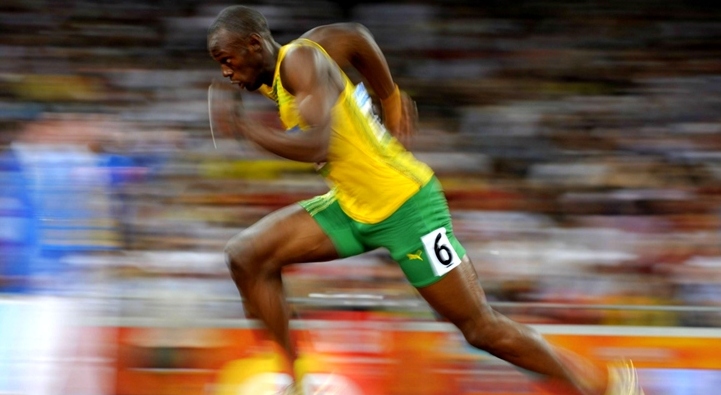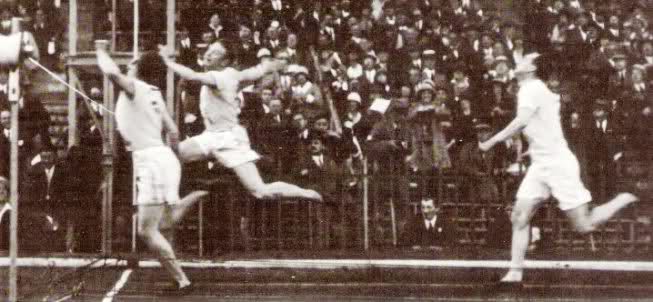A few exchanges from the early part of an excellent Ask Me Anything at Reddit being conducted by the Sports Illustrated and ProPublica journalist David Epstein, author of The Sports Gene: Inside the Science of Extraordinary Athletic Performance.
__________________________
Question:
I have always thought that Usain Bolt was dirty. He was beating the best guys in the world easily, and they were doping. But in your book you talk about why the Jamaicans are so good at sprinting. Essentially it is years of breeding amongst the best athletes that produced the best sprinters in the world in this tiny part of this tiny island. After reading that section, I started thinking, “Wow, this guy may actually be clean!” So do you think Bolt is clean, or just the possessor of the best genes the human race has to offer?
David Epstein:
I don’t want to be naive, but if I were absolutely forced to bet on it at this moment, I would go “clean” for Bolt. Would I be surprised to be wrong? Not really. After all the lying from athletes, it’d be crazy to be surprised any more. That said, there hasn’t been the proverbial “smoke” around Bolt yet, and not because people aren’t looking, so I give him the benefit of the doubt. And not that this means he’s clean, but I think his junior records are at least as impressive as his world records, so at least my suspicion index doesn’t increase just because he made bizarre performance jumps. Honestly, I think a guy like Randy Moss would potentially be Bolt-like, but in how many countries does a guy who is 6’4″ at age 15 with blinding speed end up on the track? Jamaica, Trinidad, Bahamas, maybe Barbados, and probably nowhere else. I believe there are other Bolts out there, but the sifting system I describe in chapter 10 makes sure they find them in Jamaica.
__________________________
Question:
How do you think the U.S. would do in World Cup Soccer if the best athletes in pro football, baseball, and basketball were playing soccer instead?
David Epstein:
I think the U.S. would do extremely well. In The Sports Gene, I write about a Danish scientist who takes muscle biopsies of soccer players, and his frustration that they don’t get enough guys with a high proportion of fast-twitch muscle fibers at the top level. We have a load of sprinters here! And I also write about the Netherlands soccer pipeline, and a sports scientist who helps track the top kids, and look how well they’ve done with a relatively small population. One thing she has found is that the kids who go on to the pros are always, starting from age 12, about a quarter second faster on shuttle runs than the kids who don’t make it. I tend to think if Adrian Peterson and athletes like him grew up playing soccer, we’d have a much better team. At numerous points in the book, it’s clear that one way a country dominates a sports is simply by making sure the best general athletes go through the talent funnel of that sport. Obviously, we’re massively diluting that in the U.S. I think we would be a world power if even just American football were taken out of the equation.
__________________________
Question:
With all the new science on concussions and other health issues, do you think football, the NFL in particular, will exist in a decade.
David Epstein:
I think it will exist. I look at boxing, which is completely medically indefensible, and it still exists. That said, every time I look through the new scientific literature on brain trauma, here’s the troubling trend: rather than concussions being of primary importance, the accumulation of sub-concussive hits is taking center stage. So all the rule changes in the NFL that go toward protecting defenseless receivers and all that, those are great PR but do nothing for the linemen who are taking the sub-concussive hits to the frontal lobe on every single play. And, of course, the majority of players who are ending up with their brains dissected are linemen, not receivers. …In The Sports Gene, I write about a gene variant–ApoE4–that about one in five people and that we know makes it more likely that a carrier will have permanent brain damage from taking hits to the head. All in all, I think there’s increasing evidence that some people, maybe many people, simply can’t play football without being brain damaged in some way, whether that damage is temporary or permanent. I do think, ultimately, that it will reduce the pipeline of children who participate in football, but I don’t think the game will be gone in a decade. Here’s a piece I wrote about subconcussive hits in high school players, for whom the cost/benefit analysis is vastly different than an NFL pro.•


